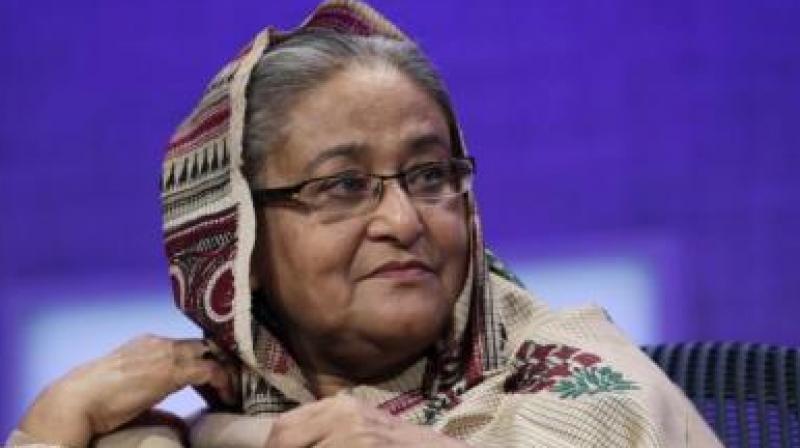Bangladesh pays tributes to martyred 1971 intellectuals

Dhaka: Bangladesh on Wednesday paid homage to the intellectuals martyred in the 1971 liberation war as President Abdul Hamid and Prime Minister Sheikh Hasina led thousands in paying their respects in the capital.
Army bugles played the 'Last Post' as Hamid and Hasina stood in solemn silence in a state ceremony at the Martyred Intellectuals Memorial in Dhaka.
Pakistani troops and their Bengali-speaking Razakar collaborators and other auxiliary forces massacred several members of the pro-independence intelligentsia including physicians, professors, writers and teachers, throughout the nine-month war that is said to have killed over a million people.
Just two days ahead of the final victory over invading Pakistani forces on December 14, 1971, the infamous Gestapo-like Al-Badr and Al-Shams militias carried out a systematic campaign to murder well-regarded academics and professionals.
The then Bangladesh government and victorious freedom fighters, however, came to know about the brutal massacre only after the December 16, 1971 surrender by Pakistani troops when their top accomplices of the Jamaat-e-Islami and its student wing went into hiding and resurfaced years later.
The nation observed the day this year even as most of the top perpetrators have been hanged in the past three years on charges of crimes against humanity during the war.
A memorial erected in memory of the martyred intellectuals at Mirpur area in the capital was readied as President Hamid and Prime Minister Hasina offered tributes by placing wreaths there.
A report of the then American Press Corps narrated the gruesome killings of Bengali intellectuals that had taken place at the fag end of the war.
"At least 125 persons, believed to be physicians, professors, writers and teachers, were found murdered today in a field outside Dacca," the report said.
The report, sent from Dhaka to Washington on December 18, 1971, was carried by the New York Times the next day.
According to the report, all the victims' hands were tied behind their backs and they had been bayoneted, garroted or shot.
The report said the victims were among an estimated 300 Bengali intellectuals, who had been seized by Pakistani soldiers and their locally recruited supporters.

